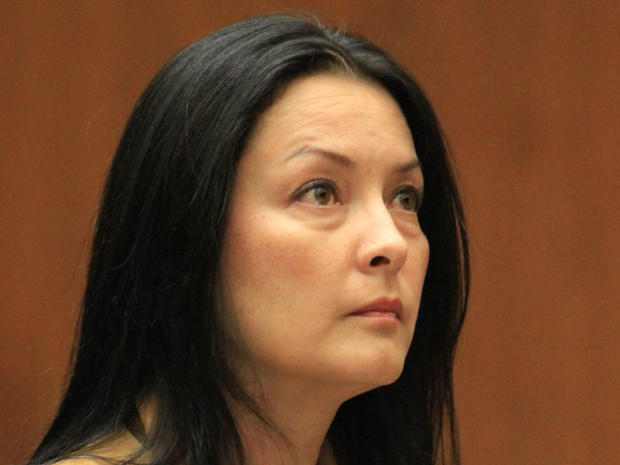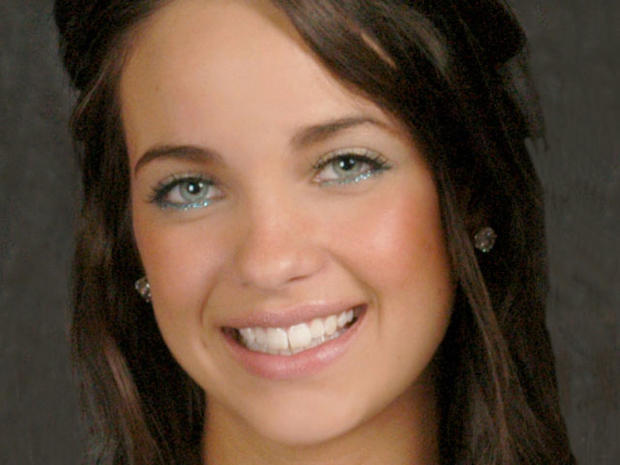Kelly Soo Park Update: Murder trial jury in day 7 of deliberations over Juliana Redding killing
This story was reported by 48 Hours producer Greg Fisher, who is covering the trial of Kelly Soo Park.
(CBS) LOS ANGELES - On the seventh calendar day of deliberations the jury in Kelly Soo Park's murder trial finally offered a possible clue to their lengthy deliberations.
PICTURES: Kelly Soo Park accused of murder
"The jury is having difficulty between first and second degree murder," Judge Kathleen Kennedy offered as "speculation," after she read back instructions regarding the two murder charges, which jurors requested she do Friday..
So far the jury has spent more time deliberating than the five days attorneys for both sides did presenting their cases at trial.
Park is accused of murdering 21-year-old aspiring Hollywood model Juliana Redding in 2008 in her Santa Monica apartment.
She faces a 25 years-to-life sentence if convicted of first degree murder, and 15 years-to-life for second degree.
Prosecutors presented a case based on Parks' DNA, a fingerprint and a drop of blood as evidence she is the killer. The jury has asked for read back testimony about the DNA evidence, and observers are speculating whether that is driving their deliberations.
Assistant District Attorney Stacey Okun-Weise's case relied on DNA found on Redding, her cellphone, the doorknob, and on a knob on the stove.
Okun-Weise told the jury Park failed in an attempt to blow up the apartment to destroy evidence, leaving her DNA on the gas stove knob.
The inescapable coup de grace establishing Park's guilt is her DNA around the victim's neck where Redding was strangled to death, said Okun-Weise.
The defense asked the jury not to trust all the DNA evidence, which Park's attorney George Bueller suggested might have been somehow transferred to the victim's apartment.
Bueller noted that Redding had lived in another house where a witness had also seen Park. Bueller told the jury that an item such as a towel might have come from that previous apartment and the real killer may have unwittingly used that towel to spread around Park's DNA.
The jury did ask to read back expert testimony establishing that the DNA belonged to Park. The crime lab analyst's testimony was that, of the crime scene evidence tested, in one case there was only a 1 in 20,000 chance that the DNA was not unique to Kelly Soo Park. In another instance, there was only a 1 in one trillion chance the DNA was not unique to the defendant.
"It would take 143 worlds" to create a possibility that it was somebody else's DNA, the prosecutor explained.
The jury also re-heard cross examination from the defense establishing that certain people are "shedders" or prone to leave DNA while some other people are not.
The jury listened again to a read back of that expert conceding that it would be possible for two people to shake hands and then for one of them to subsequently deposit the other's DNA on a door knob.
Another issue on read back is the prosecutor's contention that Park cleaned up the crime scene but left a fingerprint and a drop of blood on a plate in the sink.
Again Bueller suggested during his closing argument to jurors that the plate might have been recently unpacked by Redding and left in the sink just prior to her murder. Perhaps Park had left a fingerprint on the plate at the previous location.
On rebuttal prosecutor Okun-Weise asked the jury not to forget "their common sense" when considering these defense arguments about DNA transfer and a recently unpacked plate.
The jury did ask to examine the fingerprint card from that plate where the blood evidence was also discovered by police.
The defense also suggested to the jury that the prosecutors alleged motive was not credible and there is speculation that may be hanging up jurors.
Park was sent to Redding's apartment by her employer, Dr Munir Uwaydah, who had also briefly dated the victim, Okun-Weise said.
Prosecutors maintain that Dr Uwaydah sent Park as an intimidation tactic regarding a failing business deal between the doctor and the victim's father.
So the prosecutor asserted that Park did not necessarily arrive with the intention of committing murder, but decided at some point during the struggle to commit murder. Strangulation indicates a premeditated decision to kill, Okun-Weise argued.
Perhaps the jury is debating whether or not these facts establish first degree or second degree murder.
Judge Kennedy suggested the prosecution should consider removing the first degree murder charge to facilitate the jury coming to a verdict, but it is unlikely the District Attorney will do so without a note regarding the issue from the jury.
Complete coverage of the Kelly Soo Park-Juliana Redding case on Crimesider

